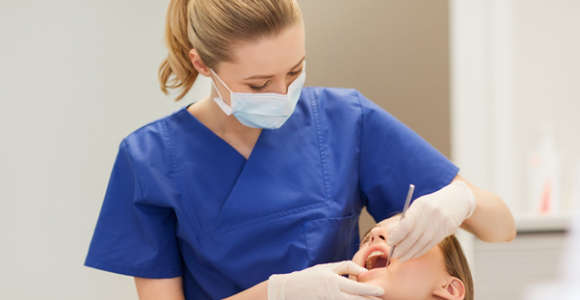Are you worried about gum disease?

Gum disease affects most people at some point in their life, whether it is gum disease itself or gingivitis, which occurs before gum disease. If gingivitis is left untreated it can result in gum disease, and you may need to have several teeth removed if this goes untreated. Your dentist or hygienist can help you to stay on top of your oral hygiene and avoid contracting both gingivitis and gum disease.
You can make an appointment with your dentist over the phone, in person or online. If you go for a dental check-up and your dentist believes you need to see them, they will inform you of this and book you in as soon as possible, or when it is convenient for you. Taking your oral hygiene seriously is important, as it can affect your overall health and even lead to things such as mouth cancer if you do not take proper care of your teeth and gums.
What is gum disease?
Gum disease is where the condition of your gum tissue has deteriorated, and your gums become less efficient at holding your teeth in place. This can happen when you have a build-up of plaque, as if you do not take care of your teeth this plaque will harden and form tartar. Once you have tartar you will not be able to brush it off, this is something your dentist will need to help you with. Hence, paying regular visits to a family dentist Sring Valley or any other local dentist can help catch early signs of gum disease.
There are several different types of bacteria in your mouth, and these combined with the mucus you produce is what results in plaque. If you brush your teeth properly you will be able to reduce the amount of plaque on your teeth. Things such as smoking and not brushing regularly increase your chances of contracting gum disease
If you have sensitive gums or they bleed when you brush, it can be a sign that you have gum disease. In addition to this if you find it uncomfortable or painful to eat or you continuously suffer from bad breath, you should make an appointment at your practice. If you do not see your dental practitioner your gums could start to recede, and your teeth can become loose.

What to do to prevent gum disease
Preventing gum disease is simple when you have a good routine in place. You should brush your teeth thoroughly twice a day, once in the morning and once before you go to bed. This will help to remove any food or plaque that has become stuck to your teeth throughout the day. Using a good mouthwash and flossing at least once a day will help to remove any food or plaque that has become caught between your teeth and in areas that are difficult to reach with your toothbrush.
Things like age and lifestyle choices can make you more susceptible to gum disease, so not smoking and being careful with your diet will help to keep gum disease at bay. Sometimes gum disease can be hereditary, so if you are aware that it runs in your family it is recommended to discuss this with your practitioner.



